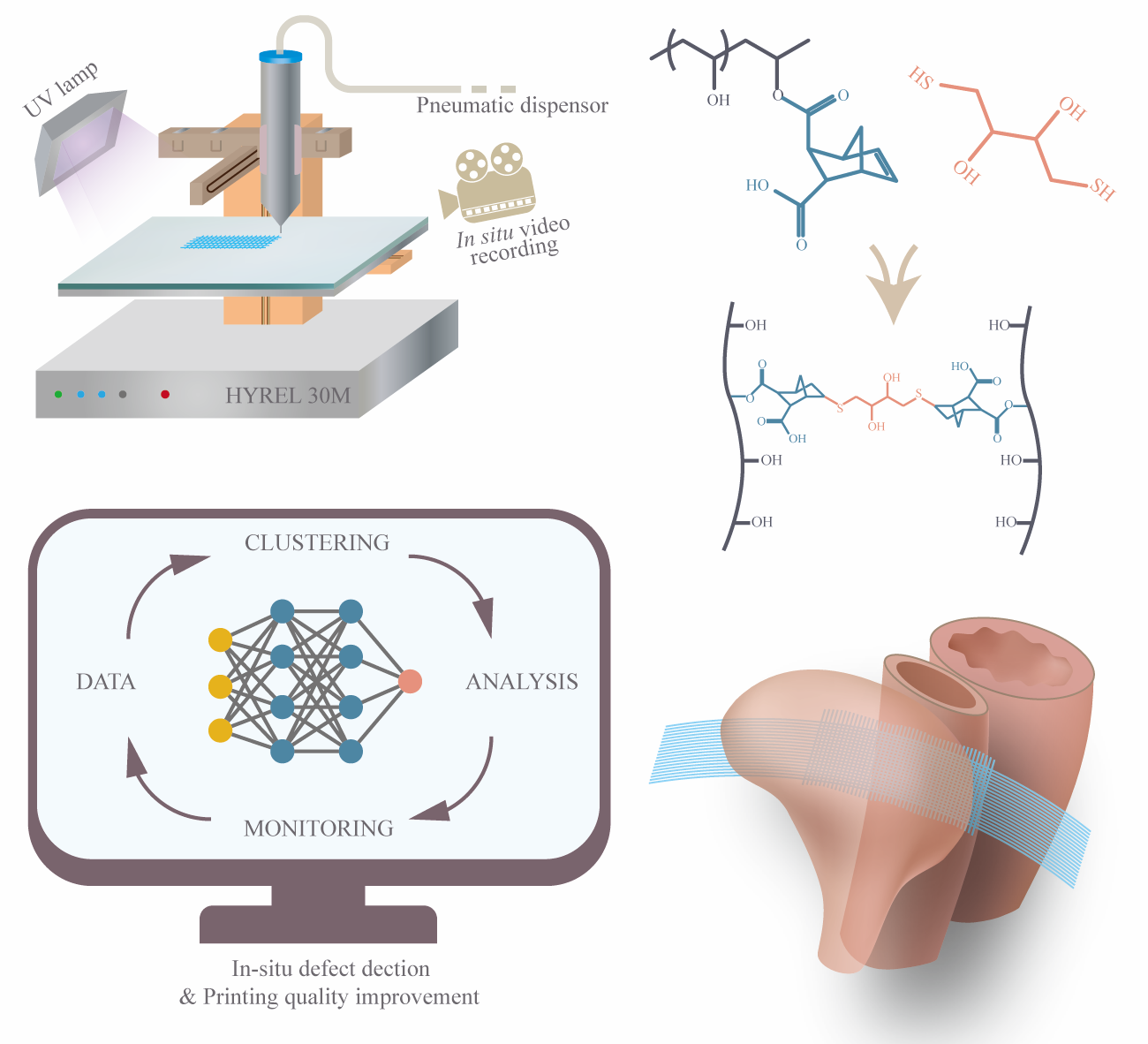(396h) 3D Printed Biocompatible Hydrogel As Pelvic Organ Prolapse (POP) Tissue Scaffolds
AIChE Annual Meeting
2023
2023 AIChE Annual Meeting
Materials Engineering and Sciences Division
Biopolymers
Thursday, November 9, 2023 - 10:15am to 10:30am
Pelvic organ prolapse (POP) is a dysfunction that almost a quarter of women in the U.S. will face in their lifetime. The FDA has banned the previous polypropylene POP mesh due to the lack of biocompatibility, biodegradability, and mechanical compliance, which are associated with surgical complications such as erosion and pain. A biocompatible hydrogel based on polyvinyl alcohol (PVA) is developed, possessing suitable mechanical properties and degradation rates for the surgical treatment of POP. Specifically, the double network include the thiol-norbornene chemical crosslink initiated with UV light, and extra crystal regions as physical crosslink nodes to further toughen the material. The PVA-based biocompatible feedstock can be printed with UV-facilitated direct ink writing (DIW)due to the thiol-norbornene “click†chemistry; machine learning method is applied during the 3D printing procedure to quantify the printing quality and optimize the parameters. The cell viability results demonstrate the low cytotoxicity the scaffolds, demonstrating its potential for future animal studies and the possibility of clinical research. The study involves multiple fields from polymer chemistry to manufacturing engineering with a specific tissue engineering application, shedding light on individualized medicine and intelligent systems for biomedical engineering.


